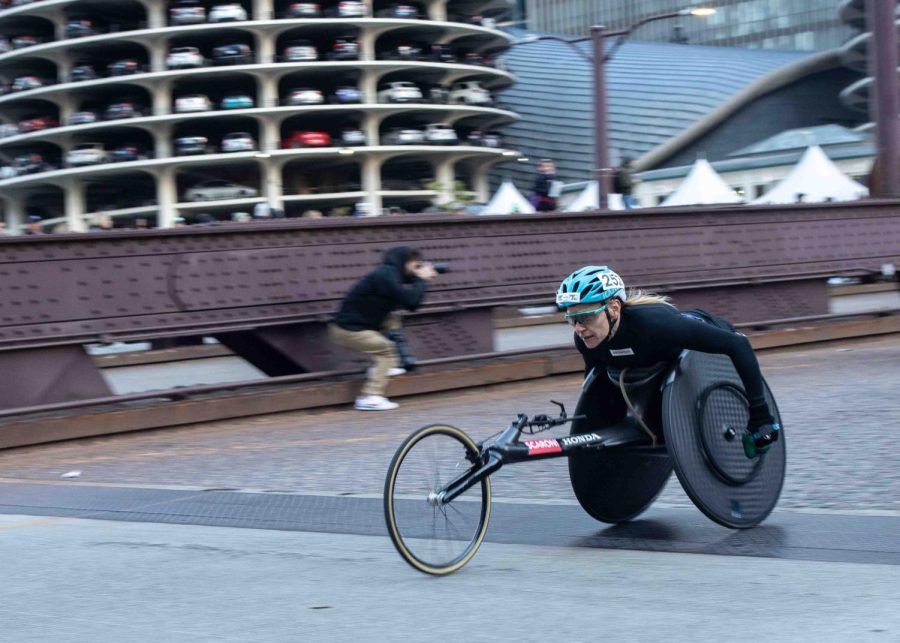Columbia alum brings inclusion to the nonbinary running community at the Chicago Marathon
October 13, 2022
Bright and early Sunday morning, 40,000 people ran their hearts out in the 2022 Bank of America Chicago Marathon, and for the first time runners had the option to register under a nonbinary division.
This change was influenced by 2017 Columbia alum Jake Fedorowski, 27, who was chosen as an official nonbinary consultant by Bank of America and marathon organizers. They were responsible for training event staff on using gender-inclusive language, sharing pronouns and refraining from assumption-making, as well as assisting with inclusive communication.
Fedorowski, a nonbinary runner, authored the The Guide to Non-Binary Inclusion in Running to help assist race directors create a safe and inclusive environment for people identifying as nonbinary as they run events.
“The roadblock that [race directors] face is either they are afraid of making a mistake or they don’t know where to start. I’m trying to help calm those fears. That’s why I created this guide,” Fedorowski said.
Fedorowski said that this past summer they decided they were done having to choose between registering under a men’s division or a women’s division.
“I was like, ‘I’m done choosing something that is not my identity,'” Fedorowski said. “I’m done paying these organizations that are going to turn around and misgender me.”
Around this time, Fedorowski started to see news about the New York City Marathon and the Philadelphia Distance Run creating nonbinary divisions, and they reached out to the race director for the Eugene Marathon about adding this option.
“That sparked a series of 30-plus conversations within the span of a few weeks,” Fedorowski said.
Eventually, Fedorowski said they had all their answers about what it means to have an inclusive space for nonbinary runners and now also had a lot of information that could be shared and formalized as a resource.
“I realized that I can give this back to the race director, but now I have all this information that could be formalized into a resource that could be shared with other race directors, or with other people like me, who want to have the conversation and who may not be comfortable or have the knowledge to step into that space and effectively have that conversation,” Fedorowski said.
Fedorowski said adding a nonbinary option that allows someone to authentically self-identify is just the first step to creating an inclusive environment.
“In reality … that race has a responsibility to make sure they are creating a safe and affirming space for nonbinary participants,” Fedorowski said.
Fedorowski said the concern they hear all of the time from race directors is they do not want to make a mistake or do something harmful to someone.
“That’s a valid reason to be cautious about any DEI work,” Fedorowski said. “The reality is, we’re not going to make any progress unless we take steps forward.”








